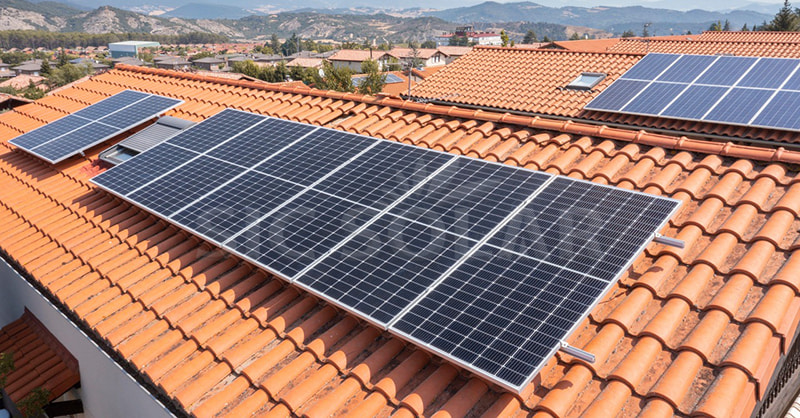How to Determine if a Pitched Roof Is Suitable for Installing a Solar System
|
- Roof Orientation The direction your roof faces is crucial for determining its suitability for solar. In the Northern Hemisphere, south-facing roofs get the most sunlight, making them perfect for solar setups. East- and west-facing roofs can work too, but they might not produce as much energy.
- Roof Pitch The angle of your pitched roof really matters for how much sunlight your solar panels will catch. Generally, a roof slope of 30 to 40 degrees is just right for making solar energy. But don't worry if your roof's pitch is a bit different; solar panels can still do a good job with the right adjustments.
- Available Roof Space The size of your roof and how much clear space you have are really important. Solar panels need enough room to make enough energy for your needs. Things like chimneys, vents, or skylights can take up space and leave less room for panels.
- Shading and Sunlight Exposure Shadows from nearby buildings, trees, or other things can really cut down on how well solar panels work. To see if your roof is a good spot, look at how much sunlight it gets during the day and throughout the year.
- Roof Condition and Structural Integrity Solar panels can be pretty heavy, so you need to make sure your roof is in good shape and strong enough to hold them. You should have your roof checked for any damage, like leaks, cracks, or weak spots, before you put up the panels.
- Local Climate and Weather Conditions The weather where you live can affect whether a solar installation is a good idea. Pitched roofs usually do well in places with lots of rain or snow because the slope helps the water and snow slide off easily. But if you live in an area with strong winds, you might need to think about how to keep the panels secure.
- Building Codes and Regulations Local building rules can play a big part in whether your pitched roof can have a solar system. Some places might have rules about where you can put the panels, or they might ask for special reinforcements or permits.
- Durable and Weather-Resistant: Made to handle tough weather, so they'll keep working well for years.
- Flexible and Adjustable: Can fit different roof pitches and orientations to get the most energy.
- Easy to Install: Designed to be put up quickly and easily, saving you time and money on labor.
